- CA2M MUSEUM
- Thinking
- ‘ART AND SECLUSION’ STUDY AND RESEARCH GROUP
‘ART AND SECLUSION’ STUDY AND RESEARCH GROUP
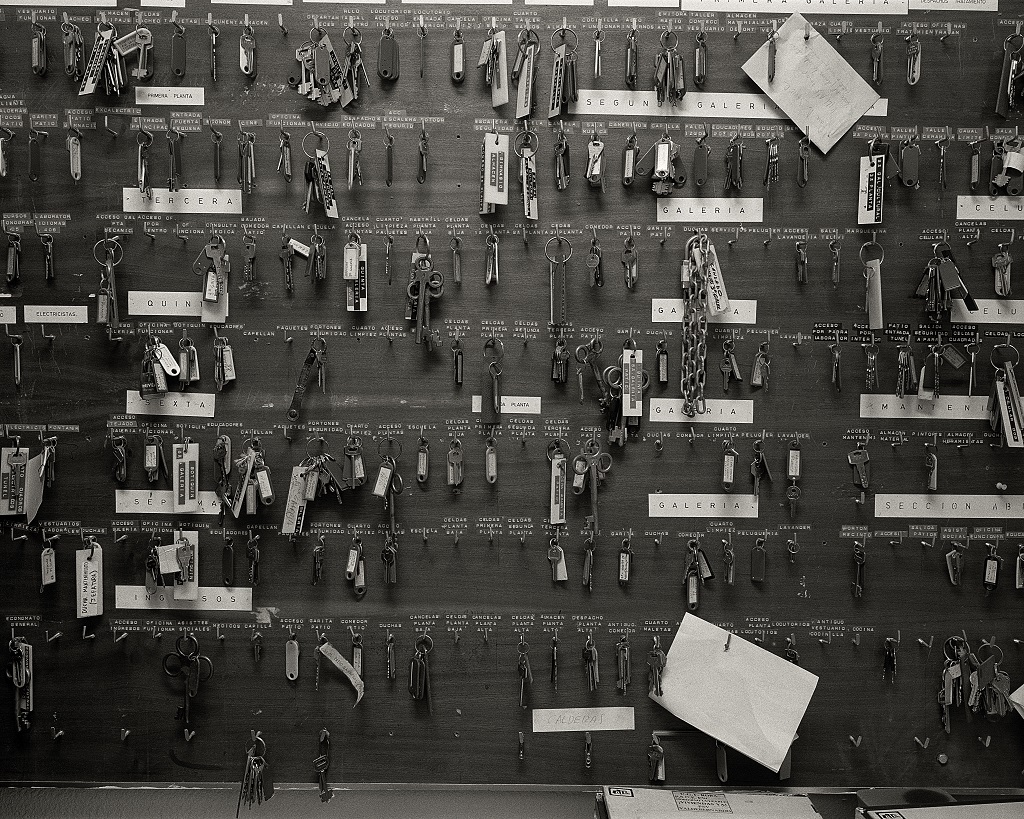
Clemente Bernad. "Cárcel de Carabanchel", 1998. Museo CA2M Collection.
The Museo Centro de Arte Dos de Mayo is launching a study and research group on ‘Art and Seclusion’. This working group was founded with the intention of using art to inquire into the frameworks related to seclusion, including both mental health and psychiatry on the one hand, and everything related to creation under circumstances of social exclusion on the other. This latter, an art of the marginal which encompasses Art Brut, a label coined by the artist Jean Dubuffet in the 1940s, refers to all artistic expressions made with no regard to either officialdom or even culture itself. And finally, it inquires into what is directly related to penitentiaries as spaces of limitation by examining works made under conditions of isolation.
Made up of Mery Cuesta, Inés Plasencia, María Rufilanchas, Pilar Soler and Tania Pardo, this group will meet periodically in closed- and open-door sessions which different creators and researchers related to this topic will be invited in order to gradually construct a body of work by analysing different artists, movements and projects that reflect all these topics. The outcome of the research will be presented in late 2025.
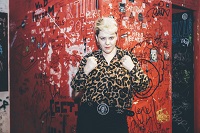
MERY CUESTA
A culture critic, exhibition curator and teacher, she specialises in languages of popular culture. She is a researcher and associate professor of Contemporary Art in the Faculty of Audiovisual Communication at the Universitat Pompeu Fabra (Barcelona) and director of the Master’s in Illustration and Visual Narrative at ELISAVA-Design and Engineering Faculty of Barcelona-UVic. As an art critic, she has written for La Vanguardia and El Mundo and reported for the Radio Nacional de España show ‘El Ojo Crítico’ (RNE1). She has curated around thirty exhibitions on popular culture and outsider art, such as Quinquis de los 80 [Kinkies of the Eighties] (CCCB, La Casa Encendida) and Humor absurdo: Una constelación del disparate en España [Absurd Humour. A Constellation of Follies in Spain] (Museo CA2M, Madrid ). She was the curator of the Catalan pavilion at the 2017 Venice Biennale. Her latest published book is Humor absurdo (Ed. Astiberri, 2021)..
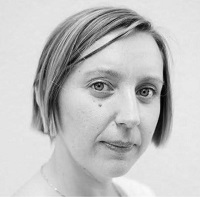
PILAR SOLER
Pilar Soler Montes is an art historian, researcher and freelance curator. She has produced various exhibitions, including Estudio cromático para el Azul for the Off PhotoEspaña Festival (2015), El ojo eléctrico at La Casa Encendida (2019), Cabeza de lobo by Blanca Gracias at Sala de Arte Joven of the Regional Government of Madrid (2022), Histeria. La transgresión del deseo at TEA, Tenerife (2023), La torre invertida. El tarot como forma y símbolo at La Casa Encendida (2024), and Lo camí del sol by Felipe Talo at Justo Gallego’s Cathedral in Mejorada del Campo (2025).
She has worked with several institutions, directing and curating projects like Fantasmagorías contemporáneas (2023) and Estudios de carne y gesto (2024) as part of the Madrid31 programme at Sala Alcala 31 of the Regional Government of Madrid and the Círculo de Bellas Artes (2023), El archivo invisible at the FelipaManuela Research Residency Centre (from 2020 to 2022), the Programa Chimenea at La Casa Encendida (from 2019 to 2020), and the Tabacalera Estancias residencies for curators funded by Spain’s Culture Ministry (from 2018 to 2020).
She has given talks and taken part in lecture series at Universidad Complutense de Madrid (Fine Arts Faculty, 2022), Universidad del País Vasco (UPV-EHU Fine Arts Faculty), Universidad de Málaga (Education Faculty, 2022), and the Museo Thyssen Bornemisza, Madrid (2014).
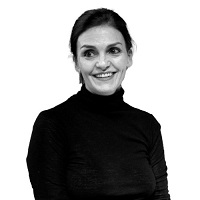
MARÍA RUFILANCHAS
She is the founder of molaría, a creative studio specialising in copywriting, and teta & teta, a nonprofit feminist brand which aims to desexualise breasts and the environment. In 2018, she launched the ‘A las olvidadas’ initiative, a project to collect books to give them to women imprisoned in penitentiaries in Spain.
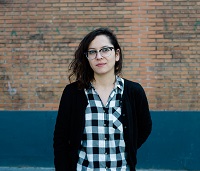
INÉS PLASENCIA CAMPS
She is a curator, researcher and cultural manager. She has a Master’s in Contemporary Art History and Visual Culture and a PhD in Art History and Theory from the Universidad Autónoma de Madrid. She is currently an associate professor at that university and teaches classes at Duke University in Madrid. Her main lines of research are the visual arts, postcolonial studies, the visual culture of colonialism and its continuities as applied to debates, questions and ways of critically questioning the contemporary world. The current core of her work is the exploration of the contemporary artistic and cultural practices of fear and what happens after death. She regularly partners with numerous institutions, such as Tabakalera (San Sebastián); the Instituto Valenciano de Arte Moderno, where she directed the ‘Norma y disidencia’ conference; and the Museo Reina Sofía, where she was a member of the team that researched and conceptualised the Rethinking Guernica project (2015–2017), part of the contemporary debates around the digital humanities and archives, where she curated the virtual exhibition Con tres heridas yo (2020). She is a regular member of variable curatorial teams to develop her projects to include other forms of knowledge, voices and sensibilities that transcend the auteur curatorial perspective to articulate critical collective spaces of action and thinking.
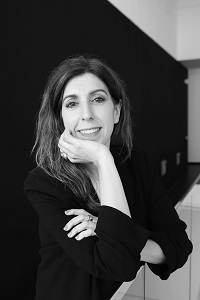
TANIA PARDO
(Madrid, 1976) She has been the director of the Museo Centro de Arte Dos de Mayo since March 2024, and until June 2023 she was a Fine Arts Advisor for the Community of Madrid. A curator and researcher, she holds a degree in Art History from the Universidad Autónoma de Madrid. She has been in charge of the Department of Exhibitions at La Casa Encendida (2015–2019) and an Art History professor at the Universidad Complutense de Madrid (2014–2019), and she is currently a member of the teaching team for the Master’s in Curatorial Studies at the Universidad de Navarra and the Master’s in Cultural Management at the Universidad Carlos III. She has been a curator at MUSAC, Museo de Arte Contemporáneo de Castilla y León, was in charge of programming at Laboratorio 987 (2005–2010) and was a Project Director at the Fundación Santander 2016 (2009–2010). She has developed different curatorial projects with different institutions, including: Sin heroísmos, por favor [No Heroics, Please] (Iván Argote-Teresa Solar Abboud-Sara Ramo) at the CA2M (March 2012); the En Casa [At Home] project at La Casa Encendida (2012) and 1465 Tizas [1465 Chalks] by Maider López at the Nave 16 in MATADERO Madrid. She co-directs the Studio Workshops on Contemporary Spanish Art (Fundación Helga de Alvear / La Casa Encendida and Museo Unión FENOSA) and the course on ‘Curating the Present’, which has been held at La Casa Encendida since 2012. She also develops projects related to the approach to contemporary art and education in conjunction with the UCM’s Fine Arts Faculty and organised the ‘Summer Salon’ (July 2014). She is in charge of the portfolio-viewing project CAFÉ DOSSIER organised by the Ministry of Culture (2013 and 2014) and launched the Madrid 45 / Línea 3 Visual Culture Programme organised by the Community of Madrid (2015–2016). She publishes in different specialised media, has regularly contributed to the El País cultural supplement Babelia as an art critic, writes for exhibition catalogues, teaches classes and seminars on contemporary art and is a jury member for different prizes and contests related to contemporary art. She and Manuel Segade recently curated the show Dialecto CA2M [CA2M Dialect] focused on the CA2M and Fundación ARCO collections and the individual show Casi 400 m2 para dos paisajes [Almost 400 m2 for Two Landscapes] by the artist Mitsuo Miura at the CA2M Museum.